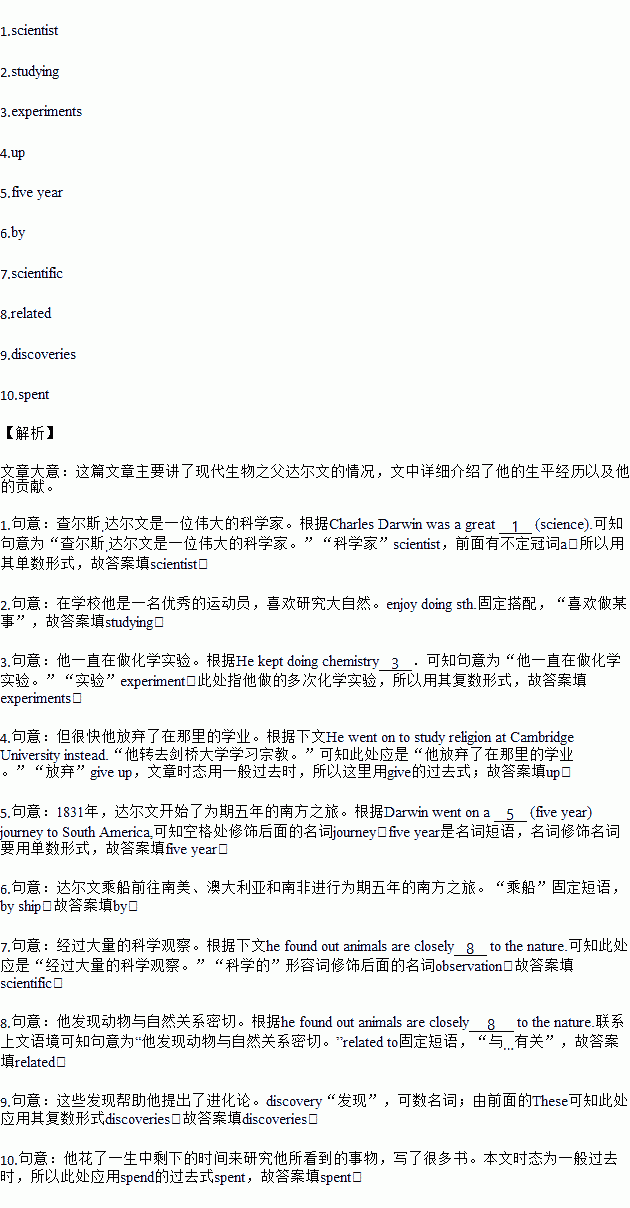题目内容
根据短文内容及所给提示, 在文中的空白处填写一个正确的单词。
Charles Darwin was a great 1. (science). And he changed our understanding of the natural world.
Darwin was born in 1809 in England. At school he was a good athlete and enjoyed2. (study) nature. He kept doing chemistry3. .
Charles started studying medicine at Edinburgh University, but soon gave 4. his studies there. He went on to study religion at Cambridge University instead.
In 1831, Darwin went on a 5. (five year) journey to South America, Australia and South Africa 6.ship. He collected many animal and plant specimens. After a lot of 7. (science) observation(观察),he found out animals are closely8. to the nature.These 9. (discovery) helped him come up with the theory of evolution.He 10. (spend) the rest of his life studying what he had seen and he wrote many books.
 口算题天天练系列答案
口算题天天练系列答案
